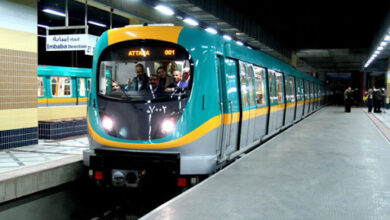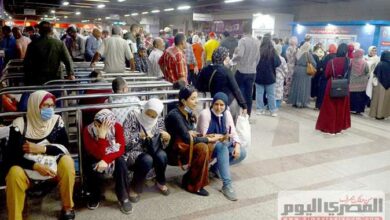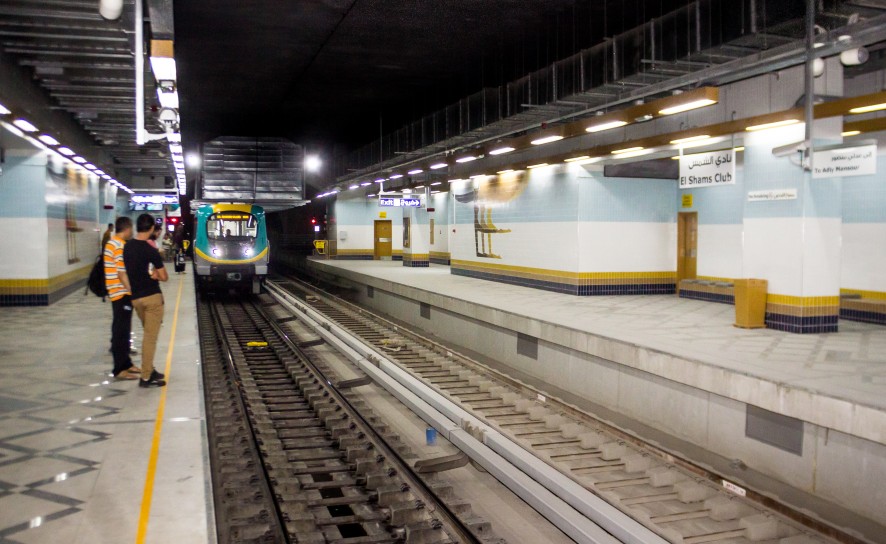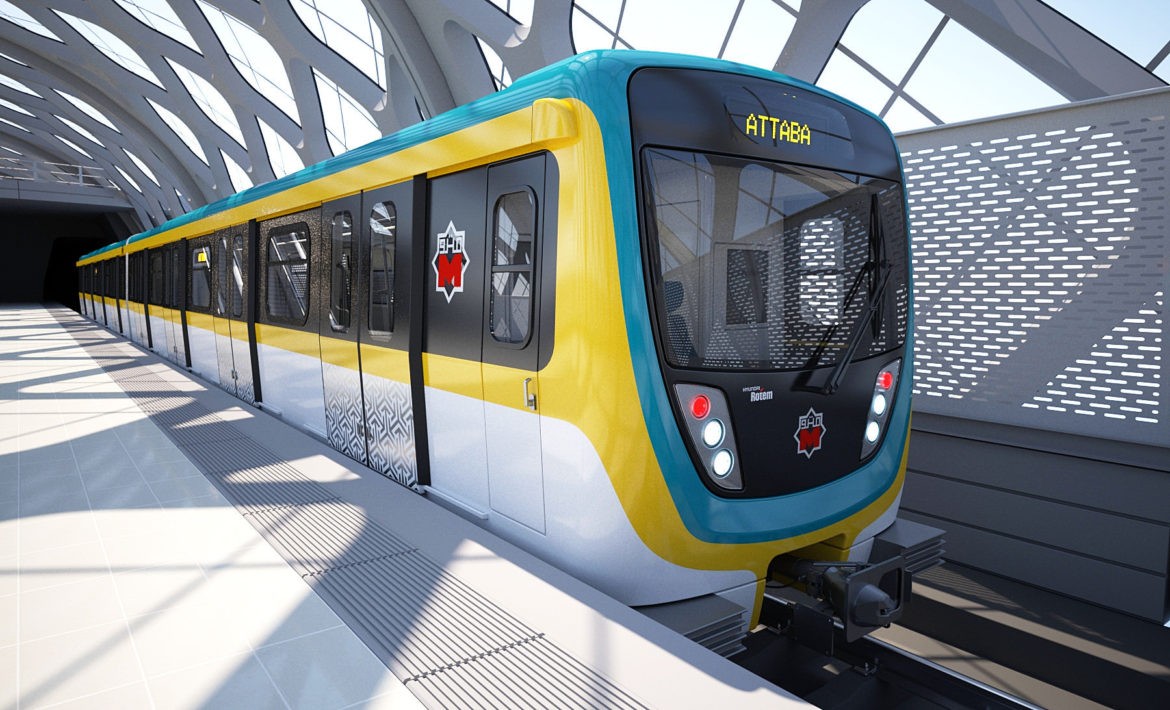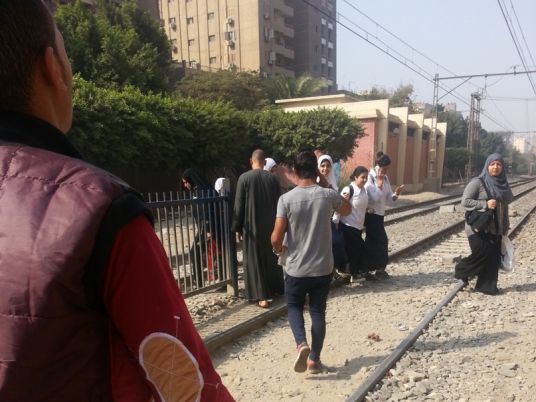
While walking along any of Cairo’s popular streets, most residents aren’t usually fazed by the familiar heaps of trash strewn about. But if you happen to walk by Hadayek El-Maadi metro station, you might be amazed to see this pivotal station, in one of the city’s most crowded neighborhoods, has been wholly transformed into a garbage dump.
Hadayek El-Maadi Metro seems to have become a train-wreck of a station, oversaturated with passengers, stray dogs and mountains of garbage that line the entire space.
The Egyptian Company for the Operation and Management of the Cairo Metro (ECOMCM) announced in 2010 their contract to reconstruct the Hadayek El-Maadi station and build a new one on the upper level that could better accommodate the volume of traffic.
The renovations were supposed to be finished on 11 November 2011 according to a banner hung on the station wall, but no improvements have been made as of now.
Day inside the station
Egypt Independent visited the station for a firsthand look. Naturally it is surrounded by a queue of tuk tuks, as well as a slew of street vendors and kiosks that opportunistically siphoned into and took over the large, torn-down area outside the station.
The station’s actual gate was a trek to reach—you’d have to walk meters instead of just sneaking in through one of the many small holes peppering the station’s outside wall.
While the situation outside wasn’t encouraging, conditions inside rendered the whole operation obsolete and overly dangerous. Workers have removed the external fence and because a sizeable chunk of the pavement is completely broken, passengers must all squeeze into one few meter-long stretch to wait for trains.
Matters are made more precarious by the absence of an internal pedestrian bridge. It was terrifying to see passengers scurrying to cross the railway in front of an approaching metro car.
The metro drivers will even honk and yell at crossing passengers occasionally in order to prevent accidents.
There was an external independent pedestrian bridge outside the station that seemed to be a safer alternative, but most residents do not use it because of its length, inconvenience and partially broken staircase.
While Metro employees and security are present, they never utter a word to prevent people from crossing the track. Instead, they help passengers arrange stones in a more orderly fashion for a ladder they have created, easing and securing this dangerous effort.
The station is full of scary dark holes and openings where you may find a urinating man or child, and wandering dogs too. It also serves as a good hiding place for bystanders and thieves.
“Take care please, there are pickpockets over there, put your cell inside your bag,” one of the Metro security officers shouts at me for caution.
The officer explained that recently many girls were pick-pocketed by unknown individuals because the station is “unsafe.”
“The station’s re-construction has not finished yet due to some financial troubles. You know the contractors resume the work when they are paid, and unfortunately they are not regularly paid,” the officer sighed.
His face beamed with a soft smile, “Do not worry, mademoiselle. The station will be ready in July 2014.” Obviously he wanted to reassure me, but in reality the prospect of repeated extensions of the project’s time frame made me more uneasy.
Passengers’ frustration
The passengers were amassed on a very narrow strip of pavement. Most of them were frustrated by the cement sacks scattered throughout the station, and angry from the scorching sunlight in the summer (the metro’s sunshades were also taken down) and lack of seating.
“The situation is terribly unsafe and dangerous. They’ve been working on the station for three years, it seems as if they are building a new pyramid,” said 22-year-old medical student Islam Sharawy.
Sharawy lives at one of the main streets in the Hadayek El-Maadi neighborhoods and uses the metro daily to go to Kasr Al-Ainy Medical School.
“You know Egyptians are the most hygienic nation,” Sharawy joked, while expressing disdain for the mountains of garbage and parked tuk tuks.
“Actually, people should have [mastered] the ‘art ’ of passing between the tuk tuks and the garbage hills at the early morning to go to their universities or work,” he sighed.
“To get inside the station is another story,” Sharawy said, laughing.
He explained that people have two choices—either to enter from the distant metro gate by trying to dodge the crazy tuk tuks on the very wide street, or to enter through one of the tiny holes.
“The station is full of building materials used by the workers, and it’s too narrow so probably anyone can fall,” he noted.
Bassma Yassien, a pregnant 25-year old housewife and resident of Hadayek Elmaadi expressed her resentment towards the Metro station, saying “the metro in Egypt generally has become very bad, especially the station at Hadayek Elmaadi.”
Yassien added the station is completely unsafe due to the broken pavement which is being further eroded every day. She said she sometimes walks to Maadi station just to be safe. “I used to cross the railway because the external bridge is too exhausting and too long as well,” she added.
Yassien pointed out that she started using taxis instead because the crowd of people squeezed into the narrow pavement is too dangerous. “Hopefully the station will be finished soon because it’s safer than the potholes of the taxis, and I am pregnant,” she said.
Official delays
According to state-owned newspaper Al-Ahram, the station should have been finalized on 2 November 2013. ECOMCM spokesperson Ahmed Abdel Hady told the paper at the beginning of this year that it is one of his “main priorities in the coming period.”
The ECOMCM spokesperson Ahmed Abdel Hady told Egypt Independent on Thursday that the delays were caused by the turmoil and unrest that erupted since the 25 January Revolution, and further exacerbated by the curfew.
Abdel Hady disclosed that the station is expected to be ready in April 2014.
“The ECOMCM has signed a contract with a company belonging to the Ministry of Transportation in 2010 to reconstruct the station with a total cost of EGP40 million,” he noted.
Abdel Hady denied that the delay is due to “financial woes.”

